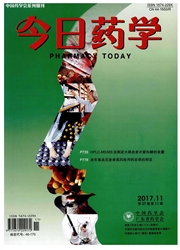

 中文摘要:
中文摘要:
目的了解本院中药注射剂干预前后的使用情况及不良反应发生情况,为中药注射剂的合理使用提供参考。方法运用行政和宣教育干预,对比分析本院2011年(干预前)与2012年(干预后)门诊和住院患者中药注射剂使用情况。结果与干预前相比,门诊患者和住院患者的中成药注射剂使用率分别从5.61%和7.23%降至4.46%和7.05%,销售金额比例从4.43%降至4.01%,不合理用药比例从2.13%降至1.59%,中药注射剂导致的不良反应从38例降至32例。结论综合干预可减少中药注射剂使用率,提高合理用药水平。
 英文摘要:
英文摘要:
Objective To investigate the application and ADR of TCM injections (TCMI) in the hospital before and after the intervention, so as to provide reference for the rational TCMI application in the clinic. Methods The TCMI application in the hospital before and after comprehensive intervention was compared. Results After intervention, TCMI application in inpatient and outpatient decreased from 5.61% and 7.23% to 4.46% and 7.05%, respectively. Sales sum decreased from 4.43% to 4.01% , inappropriate prescriptions decreased from 2. 13% to 1.59% , and the ADR caused by TCMI decreased from 38 to 32. Conclusion The comprehensive intervention adopted by the hospital could reduce the application rate of TCM injection, and promote the rational application of TCM injection.
 同期刊论文项目
同期刊论文项目
 同项目期刊论文
同项目期刊论文
 期刊信息
期刊信息
